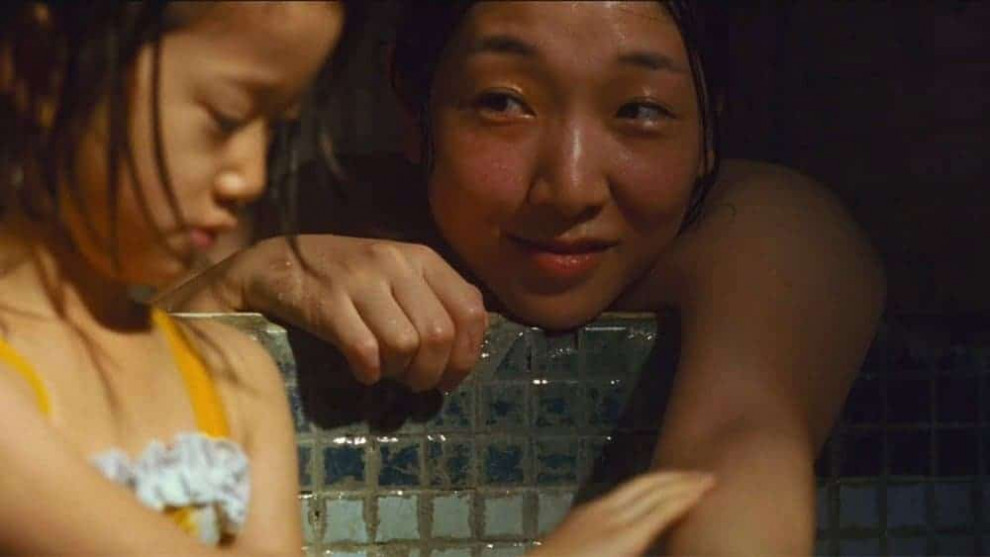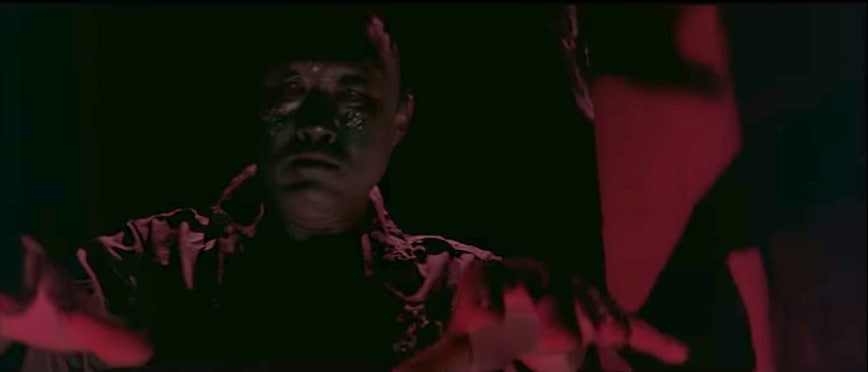by John Peter Chua
Hirokazu Kore-eda's Palme d'Or winning film Shoplifters follows a unique family with dark secrets in this extraordinary family-crime drama
Osamu Shibata (Lily Franky) is a day laborer, his wife Nobuya (Sakura Ando) is a hotel laundry worker, and their daughter Aki is a hostess at a peep show club. They don't make enough to survive and have to rely on grandmother Hatsue's (Kirin Kiki) monthly pension. To make extra cash, Nobuya steals little trinkets from her clients' laundry. On the other hand, Osamu, along with his son Shota (Kairi Jo), goes to convenient stores to shoplift for their household needs. On their way home from a successful operation, Osamu and Shota chance upon Yuri (Miyu Sasaki), a little girl left by her parents outside their house in the cold. Deciding it's unsafe for her to stay there, Osamu takes Yuri home to their rundown house. Despite their initial worry of being suspected of kidnapping the little girl, the family decides to keep her when they see that she is full of scars and bruises. Unfortunately, with the precarious setup, secrets of the Shibata family are slowly unveiled, and reality catches up with them.
This article is part of the Asian Cinema Education Film Criticism Course 2021

In “Shoplifters”, we hear lines like, “it isn't stealing if no one has bought it yet” and observe a series of petty crimes all the way to the more heinous child abduction. However, one can't help but understand and empathize with the plight of the Shibata family. Is it really kidnapping when the parents of the child don't want her in the first place? With Kore-eda's refreshingly nonjudgmental view of the characters, we are taken to an almost surreal world where morals are skewed but almost rightfully so. At the same time, we are given a new set of eyes on their struggle to keep their makeshift family intact.
Kore-eda poignantly illuminates unfortunate realities within the evolution and growing pains of the Japanese family. At a construction site, Osamu enters one of the apartments pretending like he has come home–greeting his family and even saying hello to his son, Shota. This scene brilliantly shows the irony of Osamu working to build the shelter of the traditional Japanese family but being excluded from the privileges of having one. As the film unfolds, we realize how their fate is not in their hands but on other people's. People who did not put in the time, love, and effort they did get to determine who is supposed to be their family. This may be the most painful crime in the film.
With its surreal and mundane sequences, much of the success of the film relies on the acting chops of the ensemble, all of which pull through. Kore-eda, in the same vein as “Nobody Knows,” once again shows how he can direct children (Kairi Jō and Miyu Sasaki) in a way that makes them stand equally with their more veteran peers. Lily Franky is phenomenal in portraying Osamu and his chaotic, almost destructive tendencies for shoplifting — all while highlighting his earnest desire to be worthy of being called a father. Mayu Matsuoka who plays teenager Aki, maturely captures the loneliness inherent in being an outsider in society, and gives a glimpse into what Osamu and Nobuya were like when they were younger. Kirin Kiki who gives life to Hatsue depicts the nuances of a grandmother tested by time but still in need of companionship. It is a performance worthy to be one of her last as she passed away shortly after the film's release. However, it is Sakura Ando and her portrayal of Nobuyo that steals the show. As the silent head of the family, she paints a gamut of emotions; from the pain of not being able to bear a child to accepting the moral ambiguities of her family, and facing the inescapable consequences of their actions.
The production elements are understated and don't call attention to themselves. Ryuto Kondo's cinematography captures the Shibata family in somber and calm frames, while making sure to honor the family's bond amidst their struggles in picturesque scenes. Kore-eda's editing throughout the film is slowly paced, offering a contemplative and even respectful mood. Akiko Matusada's set decoration offers a tactile and visceral experience–showing the messy and rundown interiors of the Shibata home–while highlighting the hominess and warmth of the space.
“Shoplifters” offers a look into the surreal world of unseen characters in Japanese society, clarifying realities often overlooked despite being in plain sight. It is Kore-eda at his most poignant as he masterfully pieces together a somber, heartfelt family-crime film like no other.
















